|
Score: 88/100 (8.8 out of 10)
Who would've thought that plants could be so fascinating and cool?! Well, we did, but that's beside the point. Most would think this topic would be a little dull or mundane, but author Connie L. Taylor takes it on with zest. Admittedly, we're kinda suckers for this sort of thing. No, we don't think there are magic panaceas growing out of the ground, but some of us have been fascinated with herbal remedies and dietary supplements made from these things. As a consequence of that, we're also on guard for quackery or for someone to try to sell us a “magic pill.” That is 110% not the case with this book. Taylor tells us from the get go that this book is not intended to introduce us to plants that can potential cure, treat, or diagnose diseases and/or conditions, but rather is written for the sake of posterity, for preserving history and culture, and for entertainment purposes. So on one hand... shucks. We've owned a few books that talked about things like that. Unfortunately, at least one of them, Kevin Trudeau, is in prison for touting useless supplements. Then you have guys like Dr. Oz who've always been in that grey area, touting things with some evidence but definitely preying on impressionable and often gullible audiences for views. While this book is nothing like that, and thus is “safe,” it does contain some interesting facts and stories from a historical and culture perspective. Practically all of these facts and stories are interesting and insightful. Some are humorous like with the mullein leaves, which women apparently put in their shoes to keep them from getting pregnant like a medieval contraceptive. There are also captioned pictures to show us what the different plants look like. Something that got us thinking way too hard was how the author tells us how and where to find each plant. So, inevitably we played the game of “Is that a whatchu mahcallit?” or “Is that a Thingy Majig?” every time we saw a random plant growing out of the side of a wall or by a dumpster (because the author describes some of them growing this way). On one hand, this book covers a very broad variety of plants in detail. One another hand, this book just feels like it's missing something(s). For one, you don't get to read about the sexier things like hoodia gordonii and garcinia cambogia, if even to refute their purported effectiveness. You don't get to read about the different types of tea leaves, although you do read about the tea alternatives used during the Revolutionary War times (like spicebush and strawberry bush). You don't get any discussions of bamboo or the unique way in which its used and how it grows, at least that we recall. You do get a section on ginseng, which is interesting. The thing is, we wouldn't call this an “encyclopedia” of plants, it clearly wasn't intended to be. It may be considered a reference for a number of plants, but it's nowhere near exhaustive. Something else that was a bit disappointing was that there are a lot of references to Native American beliefs, traditions, and practices regarding certain plants, however the term “Native American” is used as an umbrella term. We rarely hear about which specific Native Americans or tribes believed or practiced certain things with the plants. There is even a claim that “all” Native Americans and settlers used sweet gum. Did they really? 100% of them? However, shoutout to the author referencing the University of Hawaii's "A Guide to Medicinal Plants of Appalachia!" All in all, you get insights and pictures of 120 plants. What more could you ask for? The author is brilliant and clearly loves and cares about the subject. We recommend this book if you're into this sort of thing! Check it out here!
0 Comments
Score: 96/100 (9.6 out of 10)
This is a TERRIFIC book. There, we said it! “Enough About Me” by Richard Lui is a must read for every American regardless of age, race, orientation, gender, or political affiliation. Every single American should read this book! It's such a pleasant read from beginning to end. Richard Lui's life, thoughts, and stories are golden. The lessons we take away from this book—the greatest of which are to love and care for others and to think beyond ourselves—are superb. These are lessons and values that our kids are supposed to be learning in schools that are instead being forgotten, untaught, and eroding along with society before our very eyes. Fearfully, newer generations of adults are emerging as less grateful, less social, less compassionate, and less caring. It's an age of rampant individualism, a “Me, Me, Me” attitude, and an “us versus them” mentality. The author uses the term “meism” to describe this malady. We also live in an era of extremes—whether you are Right or Left, Republican or Democrat, Conservative or Liberal. There is seemingly no middle ground anymore. Not since the American Civil War has President Lincoln's warning, that the greatest enemy to the United States is from within, rang more true. Put more eloquently in Lincoln's words: “If destruction be our lot, we must ourselves be its author and finisher.” Richard Lui is a student of history, but he's also a student of experience—of trial and error—of successes, failures, near-successes, and near-failures. THIS is wisdom. It's the ability to look at all sides and say, “Hey, maybe there's a legitimate reason we believe the things we believe, think the way we think, and do the things we do. Maybe there are lessons to learn and positives to take away from all sides.” We've had no shortage of political and ethics books, but there's something about this particular book that's special. It's hard to put our finger on it, but it's one of the things that you just know it when you feel it. There's heart and soul in this book. It breathes. This book isn't a book about complaining about something or bemoaning a tragic and/or turbulent life. It's not a book about the evil people in our society--a witch hunt to find the next "Great Satan." There's no ranting. There's no raving. There are no tirades. And yet... there's still emotion in here. It's raw and real. This book isn't just about the author's incredible experiences as a journalist and news anchor for CNN, MSNBC, and NBC—that would be awesome on its own—it's also about the author's journey and in him learning from the interactions and experiences he had with people, most importantly with his father and grandmother. Richard Lui is an Asian-American immigrant whose grandfather, it turns out, had illegally paid his way into the USA through a sort of fraudulent scheme that became know as the “paper sons” His father, Stephen Lui, became a recognized and respected Asian-American Christian minister, eventually earning him the “Spirit of Martin Luther King” award, before his life was upended by Alzheimer's disease—a major focus of the book. As mentioned, another great section of this book involves Richard Lui's relationship with his grandmother, a woman who spoke no English while Richard spoke no Cantonese (her language). Somehow, the two were still able to coexist, love, and learn from each other. We can only imagine how differently Richard Lui's life had been if his grandfather's scheme to immigrate had failed. It's food for thought. And, of course, the news stories that Lui covers are viewed from a fresh lens—the lens of an off-duty news anchor and journalist—unbridled and uninhibited by editors and producers (although, to be fair, it seems like Lui's employers treat him very well and usually seem to nurture his gifts). These news stories include the 2004 Russian aircraft bombings (which are presented as breaking news, with limited knowledge and context), the 2018 Stoneman High School or Parkland shooting—the deadliest high school shooting in US history for which the murderer is scheduled for sentencing next month; the November 2015 Paris attacks, the 2014 Ferguson shooting and riots, the 2019 Midland-Odessa shooting (and the heroic couple that decided to warn other drivers/families at a risk to themselves), and much more. These stories are presented with tremendous journalistic integrity. There are also some beautiful life lessons to take away from this book, and not just cliché things like quoting Confucius. One of the great lessons that we took away from this is how you should water more than one plant—nurture more than one passion. The author makes the analogy to a gardener who decided to water three different plants of various sizes versus a gardener who only watered their biggest plant. The gardener who only watered his biggest plant had a great plant for a little while, however when the weather changed, the plant struggled to survive and eventually died, leaving the gardener with nothing to fall back on. Meanwhile, the gardener who watered and cared for all three of his plants saw that sometimes one plant would struggle during a certain season, however another would thrive. The gardener was then able to enjoy their plants at different times, and the plants came to flower and give fruit year-round in increments rather than all at once. This analogy is compared to the success of PayPal, which was Ebay's pet project for a while, simply a way for them to accept payments. PayPal is now worth almost twice as much as Ebay is, and that's because its creators didn't put all their eggs in one basket or only water one plant. We thought we caught a typo, then Richard Lui--being a good sport--acknowledged it and let us enjoy it. It reads: "Who cooks, cleans, and does the laundry? Who cleans up the baby? Who breastfeeds the dishes?" (Page 85) That is definitely going to be a front-runner for "Funniest Moment!" This is the same man who saw a “no go zone” designation and decided that he just needed to go there to get the scoop and confirm his belief that there is good to be found everywhere and in all people. There's so much good in this book, and it holds tremendous value. We have to give it our highest score so far: a 9.6 out of 10! Check out Richard Lui's official site! Warning: The following book & review involve sensitive subjects.Score: 86/100 (8.6 out of 10)
Well, this is a very difficult book to review. No, it's not difficult to read because of the quality of the writing. The quality of the writing is quite good. No, it's not difficult to read because it's boring. It actually maintains a level of interest and intrigue. The thing that makes this book so difficult to read and review is its subject matter and the way in which it's handled. This is a book about two minors—a boy named Todd and a girl named Sally—who were exploited by adults in the 1960s and so struggled to have normal lives afterward. This is a book about ephebophilia. There's no hopscotching around it. It is very disturbing and uncomfortable to read practically from beginning to end. Now, this isn't entirely unprecedented even in our own writing contests. For example, if we recall correctly, a story by Elizabeth Reinach last cycle discussed incest between a grandson and grandmother over an inheritance. That did not score well with us, in fact the book in which this story took place did not rank for that and other reasons. Now, to say that this and similar topics cannot be discussed in literature at all wouldn't be entirely fair. The best example to the contrary, of course, would be “Lolita” by Vladimir Nabokov. Beside the main characters, Todd and Sally, you also follow two exploitative, predatory middle-aged women named Miss Lady and Mrs. V, both of whom come across to us as rather despicable in their wants and actions, but one who seems to be somewhat redeemable (if that were even possible) and the other who is simply evil to the core. They are effectively foils of one another. Miss Lady lusts after Todd, who is at the tail end of his high school days, and begins a summer fling with him in which multiple people mistake Todd for her son and Miss Lady is tortured by her thoughts and guilt over what she is doing. The guilt that Miss Lady feels and her eventual decision to respect Todd's freedom to go and pursue relationships with girls his own age somewhat soften our feelings toward her, especially when compared to Mrs. V. Think about the character of “T-Bag” (Theodore Bagwell) from Prison Break and how there are times we actually do think he could redeem himself despite the irredeemable and unforgivable acts he committed before and during the series. For example, there are two instances in which he chooses to do the right thing and release a family he has kidnapped despite it possibly getting him into trouble (either arrest or capture by the Company). Eventually, he profoundly regrets the mistakes of his former life and wants to create a new one under a new identity, Cole Pfeiffer. Still, it doesn't erase the evils of the past, and it doesn't bring the dead back to life or repair the physical and emotional damage he caused to victims and their loved ones. Similar things can be said about Miss Lady who, despite not being a murderer per se, does irreversibly damage a boy's life. Let's not beat around the bush, the things that Miss Lady does are inexcusable and, quite frankly, disgusting. Some of the things Miss Lady and Todd do together are described in disgusting detail, and frighteningly there's even an edge of glamour to it. It's almost as if the author wants us to be excited for the two of them, but we just won't have it. Wrong is wrong is wrong. Then, there's the person we'd label as the main villain of the book: Mrs. V (Valery Valverty), Sally's cheerleading coach and pimp. Remember how we said the Wally Mussel from “My Famous Brain” by Diana Wald was pretty much Satan incarnate for the way that he exploits women and destroys peoples' lives for his own amusement? Well, if Wally Mussel is Satan incarnate, then Mrs. V is the living embodiment of the queen of hell. She is absolutely, positively despicable in every way you can possibly imagine. Whenever you think she starts showing “concern” for Sally's health and well-being, it is only because Sally and the other girls (like Brenda) are merchandise to her. She doesn't want damaged goods. She could care less about Sally as a girl or as a human being. To her, she's as usable and expendable as a toothpick. She wants to clean her dirt out with her, break her in half, and discard her so she can find another pick in the pack. Mrs. V quite literally pimps Sally and her cheerleading teammates (like Branda) out to every guy wealthy or powerful enough, and she controls them through fear, threats, lies, and money. This is pimping, extortion, exploitation, and endangerment to the highest degree. What's extra uncomfortable about this whole thing is that not only does Mrs. V start using the term “adventures” to describe these exploits, but the other characters and the author start using this term as well. Mrs. V preys on Sally's desire to be a capable woman and to be desirable to men. She constantly threatens her position on the team or the school in addition to withholding money. She even tries to convince Sally to kill her unborn baby against her will under threat of telling her grandma about her sexuality and pregnancy. It's disgusting. We know we've used that word several times already but there's no better word for it, it's disgusting. Absolutely disgusting. Absolutely reprehensible. And the book lingers on these things. One time wasn't enough. We have to read about statutory rape multiple times upon multiple times. It's too much. Once is too much. A seeming dozen times is toss-this-book-against-a-wall worthy. The thing we considered was: are these events a retelling of actual real-life events with the names changed? That's the only way this book kind of made sense. The reason we say this is because this book is very detailed and sometimes repetitive. Real life is repetitive. You wake up and usually perform the same activities every day. It's also written chronologically and is very specific. For example, we find out what happened to almost all of the major characters by the end of the book, and these things are oddly specific at times. It's almost as if the author knew these people or someone very similar to them. Oh, and by the way, the Vietnam War happens and one of our main characters, Todd, ends up in it. Not only does he end up in it, but he becomes a POW. He also commits assault, so there's a courtroom drama section in here too. Also, Todd is a cowboy, so he does cowboys things including compete in wrangling events. We bet you didn't see all that coming. See, that's why we wonder if this actually happened, and if it actually happened, Todd, Sally, and their kids need serious help. What's more is that Mrs. V, if she's still alive and out there, needs to be held accountable for her crimes. Should we call someone? Seriously?! Is that the point of the book or something? Is it that when we see or hear about children being exploited, we should report it or do something about it? If so, then why is the relationship between Miss Lady and Todd so glamorized? Why are we supposed to feel bad for her at the end of the book? Like “Lolita” this is a beautifully written book about a disgustingly ugly subject. It would have to score between 75 (barely reviewable) to 88 (a fairly average to good book). We're going to go ahead and score it an 86 because of the effort that obviously went into creating this and also the quality of the writing. However, we absolutely don't condone the actions of most of these characters. This is not the feel-good romance that the title “A Hundred Honeymoons” implies. This is more like if Forrest Gump were written and directed by Quentin Tarantino and Michael Bay, but they ran out of a budget for Bay's explosions so he just chimed in on his ideas on how human characters should be portrayed as Tarantino did his thing and made it as screwed up as possible. If anything, this is a book you show your 16 to 19-year-old on how not to live a life like this by not forsaking your values and preserving your human dignity. If you'd like to give it a read, it's on Amazon. Score: 95/100 (9.5 out of 10)
If there was one children's book that did just about all the right things, this is it! “God Made It All” combines a positive message with beautiful, appealing illustrations and a rhyming scheme that's not overly simplistic nor overly complex. Now let's get this out of the way really quickly: an argument could be made that because of the Christian or religious nature of this book, it might cause us to be biased toward it. Nothing could be further from the truth. For example, “The Greatest Light” by Tim & Cindy Morrison was also a Christian children's book which we enjoyed for what it was. However, it scored under a 90/100 and did not place in the top three in children's books because we felt that the illustrations left a lot to be desired. We've also reviewed children's books that were beautiful but suffered from some flaws like being overly wordy, lacking in actual illustrations, or not being enjoyable for children. That's just not the case with this book. It's solid from beginning to end. Something that you really want in a children's book is one that has illustrations that make the children say, “WOW!” Something else is having a book that provokes discussion while not being tiresome or boring. Children do not have a long attention span. Heck, this newer generation in general—even the somewhat older siblings and youth group leaders who'll be reading this to children—have a short attention span. You can easily flip to a page and have a fun, thought-provoking discussion with a child about what kind of animal is on the page, what the people on the page are doing, what the person on the page found, and so on. On one hand, you can get the classic, age-old Sunday school response of, “God did it!” On the other hand, you might get funny answers like a child believing the little girl character found an Easter egg instead of a mango. The only thing about this book that keeps it from being perfect is that it can be challenging. A Sunday school teacher or youth group leader needs to be prepared and willing to think on their feet while reading this. If a child has a question, they need to be prepared to answer. Thankfully, it isn't climbing Mt. Everest. The answer to most of the questions is simply the age-old “God made it all!” This book is page after page of beautiful, meaningful illustrations accompanying an unrivaled message! Check it out on Amazon! Score: 89/100 (8.9 out of 10)
This is a positive, feel-good book about a topic that doesn't get the amount of attention and care it deserves: working with children who have disabilities. How can you fault that? This book also has a rather heavy Christian or religious angle to it as faith is a very important aspect of the author's life. It is also important to the organization he works for that provides care to these disabled children, L'Arche Faith and Light. “Building with Discarded Stones” is compelling on its own, but when you visit the Faith and Light website and actually see the work that they do, it really hits you in the heart. The work that these people do is phenomenal. There was a time in human history when the mentally disabled were routinely discriminated against, isolated, or sent to asylums that treated them worse than cattle at times, controlling them with inhumane restraints and drugs. Faith and Light really puts the so-often-talked-about love of Jesus into practice. Because is faith without works even faith at all? Can we love God and yet treat our neighbors (our fellow human beings) like junk? No. And what the workers at Faith and Light are doing is the perfect illustration of Christ's love for humanity. This book does pose some rather interesting questions like why God would allow some people to be born different, what place the disabled have in the grand scheme of the universe or God's plan, and ultimately if the mentally handicapped are still able to form a relationship with God and to know/love Jesus. Those are some very heavy and loaded topics, but the author doesn't shy away from them. That takes some guts and courage. Perhaps the best things about this book are the little stories regarding individual clients who have disabilities. Some are actually quite cute and interesting, while others actually push you out of your comfort zone or have you at the edge of your seat. There's a story in here about a disabled boy who'd wanted to play the part of Jesus in school play. There was a lot of doubt if he could do it and/or if he'd grasp the significance of the role. The result might surprise you! There's another story about a disabled student who develops an almost obsessive crush on a faith leader named Maria Cecilia, especially after becoming fixated with the idea of marriage from TV shows and movies. Managing that tactfully with respect to both sides is such a tug-o-war. What's a bit uncomfortable is the fact that some of the others in the group seem to pressure Maria into entertaining the boy's obsession just to keep him happy, which we don't think would be very good advice. Maria does the correct thing in essentially saying that because she cares about him and respects him, she can't lie to him about the way that she feels. There's also a big twist in the end involving Maria and this boy! There's also a pretty interesting story involving a very bigoted old south, Alabaman woman who slowly develops an appreciation and respect for a Black disabled child. This is a very positive book with a good message, and there's some entertainment and intrigue to be found in here. Check it out on Amazon! Score: 89/100 (8.9 out of 10)
There are so many great and potentially-great things in this book, but for 3/4ths of it, our brains were melting and leaking out of our ears, eyes, and noses. The what is the what? And the where? And the why? Huh? There are so many things that just happen in this book. There are so many things that just get talked about in this book, usually in incredible and seemingly unnecessary detail. Did you want to learn the history of the Civil War and the fall of the Roman Empire for some reason in the middle of reading about this futuristic society and its ability to implant knowledge into your brain Matrix-style? Well, here's the book for you! Did you want to learn about Judeo-Christian theology/mythology mixed in with New-Age paganism, secularism/atheism, and pansexuality for really no discernible reason? Then this is the book for you! If you wanted to read a somewhat compelling thriller involving the abd*ction of an American pr**ident (censored so the Secret Service doesn't come after us) interwoven with spur-of-the-moment, spontaneous Lesbian insta-romance built on top of a plot that we thought was about a Pulitzer-Prize-winning journalist uncovering an unscrupulous, secret conspiracy to found a horse-racing rink and a Hollywood Island/pocket universe/alternate timeline, then this book might be for you! Hold on while we catch our breath after reading that sentence. Ok, let's continue... Did you ever dream that one day you'd be assigned to interview your favorite actor or actress—the hottest, most famous, most desirable human being in the world—only to find out that they've been madly in love with you for years and want nothing more than to rub their hands all over your luscious private parts, and even marry you? Just. Like. That. Well, then this is the book for you! Did you ever wonder if maybe the government or some business oligarchs might want to implant a chip into you that can control the way you think, allow you to bring your thoughts to fruition, or even manipulate your physiology? Then this is the book for you! Did you ever wonder what would happen if a politician became so powerful and popular that they could found their own splinter party separate from the Donkeys and the Elephants, yet still be Speaker of the House somehow? Then this is the book for you! This book is filled to the brim with so many amazing and brilliant ideas; they're just muddled and sliced together like fruits, sardines, and protein powder in a blender. It's like a pineapple pizza, or noodles with cranberry bits, or toast with raisins in it. Now, we digress a little because there were things about the first 340 pages that frustrated or confused us that kinda got explained later in the book. For example, the author felt the need to constantly stop whatever plot was happening in order to give us a long, detailed history lesson that could presumably take up a whole lecture (50-60 minutes). We eventually figured out that the president and one of the main characters was a former history professor who specialized in the fall of the Roman Empire. We also realized pretty quickly that all these lessons from history were relevant in that they were symbolic and foreshadowing the fall of the United States of America, western civilization, or even human civilization as a whole. In other words, we screwed up in the past, would you like us to continue to screw up and go the way of the dodo? Rome wasn't destroyed in a day. Years of dumb@$$ery add up. The problem with all of this is, whenever these full-length lectures occurred in the middle of the book, the plot and pacing stopped dead in their tracks. These history lessons start taking place almost immediately, before we're even able to learn who the main characters are and why we should really care about them. They just barge in unannounced and uninvited like a mother-in-law to an orgy. And that's another thing. This book is such an orgy. From beginning to end, it just seems like everyone is just so dang horny for everyone else. People see each other and become like frisky rabbits that just need to jump on each other right away. We get that the author may have been trying to portray what a pansexual society might be like, but it just doesn't seem to fit the rest of the book with its political drama and history lectures. Do you want us to take all of this seriously or do you want us to be laughing our butts off with the over-the-top, out-of-nowhere sexuality? So we've been super critical of this book, but why does it still score relatively high? Because it's imaginative as heck and eerily relevant to the apocalyptic events of 2020-2022. We are looking at a dark, dank American and global future hundreds or even just dozens of years from now. Heck, we could imagine this coming next year. We are seeing a huge, concerning culture war, particularly between the Left and the Right, and new ways with tradition. Riots are breaking out on both sides because of this. People are dying or having their lives upended. In “The Future is a Memory” we see a population torn between accepting implants that can presumably give them an advantage (anti-aging, ability to communicate and know more things) but can also alter their thoughts and their perception of reality. We also see the rise of neo-politics, powerful political movements that are rapidly gaining steam like the Alt-Right and Neoliberalism that are starting to challenge the older order built on checks and balances and hearing all sides. On a side note, we get one of the funniest lines in any book we've ever read when describing why a politician was hand-picked: “Someone whose beliefs would support Thorne's imperial outlook and who could be easily manipulated. Someone so far to the left that they were right and thus fascist” (page 287). Just read that a few times if you didn't get that the first time. It's actually hilarious. What this statement assumes or at least pokes fun at is the fallacy that everyone on the Right is fascist and that everyone on the far-Left is so militant and dogmatic that they're actually fascist too. So, remember McCarthyism? Yeah, that's that except now everyone we don't agree with isn't communist anymore, they're just a fascist. That's literally how some people think these days. There's also some really good information. The history is actually fun to read and fascinating, although distracting from the plot and characters. Speaking of characters, some of them are actually quite interesting. Ashley and Veronica, although they start out in a hard-to-buy insta-romance, develop into a compelling couple with some layers. Veronica is another candidate for “Hottest Character” along with old-man-playboy Jack from “My Famous Brain” by Diane Wald. President Rebecca Sheridan is very interesting not only as a female president, but as a female president with a very specific skill-set and knowledge of history (and how not to repeat it). And another great thing about this book is that it has a clear main villain: Speaker of the House Richard Thorne, the Machiavellian leader of the Imperials—a branch of the extreme Right. Things actually come full-circle, and you get why the title is “The Future is a Memory.” If you have the patience to wait it out, it can pay off. Oh, really quickly, some of the coolest and best-done parts of this book involve the “hollow” technology—another term for 3D virtual reality or means of communicating and consuming media. We seriously think this is a realistic portrayal of that. Things like this make this book a very worthwhile read! Score: 95/100 (9.5 out of 10)
WOW! What an incredible journey! This is the fascinating story of a Nigerian-American immigrant named Emeka as he acclimates to his new life in Chicago, Illinois USA. He comes with the idea that America is a great land of tremendous opportunity, equal opportunity, fairness, and wealth, but is confronted with the realities that Americans are still fallible and flawed human beings, taxation is a thing, capitalism has its vices, and corruption still exists even at the highest levels of government. Perhaps the saddest thing he learns about America is that racism and, specifically, racial-profiling is prevalent. Several times throughout this story, this well-meaning and innocent Nigerian immigrant who is still learning English is pulled aside or even arrested and interrogated by police for matching the description of a Black suspect. It is tragic to read about and, as an American, downright frustrating and embarrassing. It shouldn't be this way, but it is. Interestingly, Emeka's understanding of social norms from his upbringing in Nigeria are constantly challenged. For example, he is shocked when people have children out of wedlock or get married before the age of 19. He is shocked to hear an American politician swear. He is shocked when police officers react with hostility when offered a bribe instead of accepting it. He is confused when people don't refer to each other by titles like “Mister” and “Misses.” He is flabbergasted when he receives a paycheck that is a lot less than expected because of state and federal taxes, Medicare, and social security. That is, perhaps, the most relatable thing we've ever read from a book of this nature: more than falling in love, losing a loved one, or even stubbing your toe—it's being robbed by Uncle Sam that's most relatable. What employee in America hasn't felt that way before? His anger and frustration at this is raw and entirely understandable, especially when he states that he'd already had plans for that money like sending some of it proudly to his family. His jaw also drops at the insane prices of American goods, services, and just the plain cost of living. He regularly walks four miles to and from work every day just to save money for transportation. He regularly doesn't eat normally to save money because a bottle of water at a restaurant is $1.75 and soda is over $2. These are very understandable, human struggles that Emeka seems to face with a courageous and positive attitude most of the time, though he often hides this behavior out of shame and embarrassment. He also begins to hide his food or heat it up in private because he is nervous that people think it looks strange or smells bad. He is incredibly socially awkward by American standards, mostly because he doesn't understand certain words and phrases out of context. For example, he takes offense to being called a “pretty smart guy” because in his mind he associates the word “pretty” with being feminine or girly. He doesn't understand how an animal can be called “cute” because he thinks the word “cute” is an adjective intended to describe someone like a child. There are a lot of nice little twists and layers to this story, such as when we hear about a prince from Emeka's home country who had a homeless and mentally disabled nephew who had robbed a poor woman. What's also very powerful and amazing about this book is that despite all the terrible things that Emeka sees and experiences, particularly from police, he still believes in the greatness and promise of America. This positive outlook despite all the challenges is why we root for Emeka and want him to find happiness. There is also another good character in this book named Nicole who serves as Emeka's love interest through the course of the story, and the little surprise at the end is worth reading on for. Check out this book on Amazon today! Score: 93/100 (9.3 out of 10)
This is a cute, sweet children's book about important subjects like trust, affection, apprehension, and becoming comfortable with physical contact and social interactions in general. Children, like adults, often have trouble coming around to embracing social norms and engaging in social interactions or environments, hence the term “socially awkward.” This can make it difficult for them to take risks, step outside their comfort zones, show their true emotions, or to develop strong and meaningful relationships with people. There are even terms for this such as “breaking the ice” or “coming out of [his/her/their] shell.” This book confronts this issue in a tactful and beautiful way by using the example of the character Sam, a son who seems apprehensive about social contact. Through trial and error, his family is lovingly able to chip away at his figurative walls until he becomes comfortable with the idea of hugging and holding his loved ones. The way they do this is actually rather ingenious, but not so uncommon: they get him a pet. This is a practice advocated and practiced by families to teach their kids responsibility and compassion for others. It also gives them a “friend” and shows them how to be a friend. The art in this book is very impressive and quite beautiful. There is an aspect of it that we're confident will present a challenge to some readers, especially younger ones, and that's simply the concept of the “uncanny valley.” This is the phenomenon in which something looks too human and real but is neither truly human or real. This creates a feeling of anxiety, fear, and/or revulsion among some viewers who are especially sensitive to this. The human characters in this book look realistic, but are not hyper-realistic. They fall right into that uncanny valley. Their faces look like realistic human faces, but their bodies, clothes, and the scenery are much more artsy and cartoonish. Further emphasizing this point is Sam himself. There's just something kinda sinister about the way his face is drawn. Look at the way his eyes and brow flare up and out on page 6, 10, 12, and 22. It's almost the look a villain would give while presenting an evil monologue or finding the forbidden McGuffin (ex. the Ark of the Covenant, the Infinity Gauntlet, or a chest full of gold). Another thing about Sam is that either his body's proportions were accidentally drawn larger than originally intended, or the character himself is a bit too old for the target audience. The target audience would probably be young children and parents of young children who have social anxiety or who are socially awkward. Sam is very clearly not a “young child.” He towers over other characters in some of these pictures. Yes, we know they are sitting, kneeling, or squatting down, but even when he is sitting, his torso is tall like that of a teenager—not someone who is going to hear bedtime stories, come to circle time, or go to the reading corner. This kid seems to be old enough to have a library card and hang out there by himself. Any maybe that's the point. Maybe Sam's concerning lack of social interactions has stunted him socially and/or intellectually. He is a physically big guy in a shy, little guy's body. Maybe he might have a learning or mental disability that we aren't aware of, but that is somewhat implied. It's also somewhat possible that he's just a physically big little kid. He looks like he's going to grow up to become an Olympic pole vaulter or an offensive tackle. The height, broadness, and overall size of his dad suggests that this may be hereditary. Also, the dog is absolutely adorable and we want to pet and hug him ourselves! Either way, we can't help but be amazed and impressed by the art and the heart of this book! Check it out on Amazon! Score: 87/100 (8.7 out of 10)
Well, this is quite a fun little story by international author Godwin-Cornelius Udagbor of Nigeria! This book involves the power of storytelling in preserving indigenous culture as well as the tug-o-war between the old and the new. Baba (“father”), a village elder and ex-soldier, tells the mythological story of Ochagbe, a land in Nigeria, where the people had accidentally taken in and adopted the malevolent god of death, Okah. Okah was originally brought in to solve a critical problem in the land, but instead the deity demanded human sacrifices, something which grew out of control and angered the population. A powerful priest named Abokpe then offended Okah by failing to supply sacrifices and festivities in time, thus starving him of his food. In retaliation, Okah brought a famine upon the land, and to appease him and save his people, Abokpe was given the unenviable task of choosing to sacrifice one of his three sons: Ireritem, Ogbor, or Odey. This story is played side-by-side with the stories shared by missionaries about their “big God” or “Osobuchi” and a new way of viewing cosmology and the sanctity of human life. While we wish that we were given more time to learn about these characters in-depth and as individuals, the story is still interesting and captivating. One of the best things about this little book is that we really get to know Ochagbe—the people, the culture, the food, the places therein, and more. It's so interesting and fresh! We rarely get to see and read about another culture like this. The influence of the western missionaries and their beliefs and insights cut in and out as they not only share western religion with the Uchagbe people but also knowledge about things like sickle cell anemia, a likely explanation for miscarriages among the women. The only really negatives things we can say about this awesome book is that it's so short, and thus characters don't get developed as much as they could. This book could've used an extra few chapters to flesh out interesting characters like Ojata, the village comedian. It also ends rather abruptly. We think we can guess why this was done: because it would cost an arm and a leg to translate a longer book into so many languages. Still, this little book is a worthwhile read! It is available in many languages from the author's site! Score: 93/100 (9.3 out of 10)
This is a well-written, thought-provoking philosophical book that takes a critical approach to modern American society and culture. The book is especially critical of the lack of intelligence and care among the newer generations as well as gaps in American education. The author proposes, as we've done in the past, that the keys to a better future start within the home and the schools. The author seems to be concerned that problems in American society will continue to cultivate and propagate a culture ignorance, lack of responsibility, rampant individualism, and even racism. The socio-cultural and political events of 2020-2022 such as the response to the COVID-19 pandemic by some Americans, the murder of George Floyd, and the January 6th Capitol Riot have brought to light the growing chasm in the country along with the prevalence of ignorance—a profound lack of wisdom. The author uses such examples as Trump supporters believing the claims that the 2020 presidential election was “stolen” and that the Coronavirus vaccine was tainted to substantiate his claims. The premise seems to be that we are surrounded by idiots who refuse to do their due diligence and will believe anything they see on social media at the drop of a hat. That's a sentiment held by many Americans—Right, Left, Up, Down, and everyone in between. There are perhaps two main problems with this book that keep it from being a 9.4 or 9.5: the repetition of information and, though we hate to say this, the author's bias—more so a bias that defies and contradicts the thesis. The first problem with this book is that despite its eloquence, it often rambles on and repeats information. What we've presented above is basically this book in a nutshell. These same thoughts are essentially repeated over and over again, and we think we know why. This book seems to have been written to achieve a very specific objective: to challenge the author's conspiracy-theory-believing loved ones with what the author holds as cold, hard facts. It's a very noble cause as the author seems to, for example, want his loved ones to be vaccinated and to vaccinate their kids rather than leave them to believe the conspiracy theories surrounding it. The author cites “a huge intellectual and emotional rift between my mother and sister and me” (page 16). We can definitely understand that. We all know someone, perhaps even a loved one, who refuses to listen to reason and wants to believe what they've seen on TV or on YouTube or Facebook about a certain issue. The chemtrail conspiracy theory comes to mind—something unsubstantiated which still takes hold of a surprising number of minds. The second problem with this book is the author's very obvious bias against a particular political ideology. That wouldn't have been much of an issue if the author hadn't persistently claimed to be a “moderate” or “raging moderate.” It's very clear from reading this book that the author is not as much of a moderate as they claim to be. And that's fine. To each their own. But it just doesn't seem honest or right for the author to almost exclusively bash on one side of the political spectrum (the Right) while calling themselves a moderate. It's equally dishonest and not right when someone who is clearly on the Right, like Tim Pool, constantly does the same thing by constantly claiming himself to be a moderate, a centrist, and a Libertarian. Yeah right, Tim. Calling yourself a “moderate” seems to be a buzz term for “please don't be mad at me, I'm fair, balanced, and hearing both sides.” This is clearly not a moderate's book. Almost all references to Republicans are negative beside John McCain (because he passed away and was mistreated by Trump, so serves as an example of why Trump sucks) and “mostly great American” Colin Powell (because he passed away, was mistreated by Trump, did a nice thing once, and also further serves as an example of why Trump sucks). Listen to the anger and rage in the following passage by the author and see if you can catch the abandonment of control and reason to take as big a punch as possible: “With the Republican Party now largely a disgraceful cult, 90% ethnically homogenous, and endlessly aggrieved there is a real political threat posed by what could fairly be characterized as malignant tribal arrogance. Those who should be the conscience of America—evangelical Christians—are largely silent and complicit with the chicanery and audacity. Throw in guns and eroding social norms, and we have a big problem" (page 178). Did you catch why this passage is problematic? First of all, it's an enormous over-simplification and character assassination of a huge group of people and their ideology by calling them a cult. It also does not feel fair or right at all to attack them on the basis of being mostly-Caucasian and mostly-Christian. So what? If they were mostly-Asian and mostly-Hindu it would make it ok? If they were Mongolian, Senegalese, Cambodian, Turkish, and Afghani they're free to be jerks and act like racist hillbillies because they're diverse? That's not right either. It's not their race or religion that arguably makes them “bad,” it's just their views and how they practice them. Pointing out their race and religion as negative things is quite literally hypocrisy as we're not supposed to be racist and discriminate against people, right? Right? There are at least 30 references to Donald Trump in this book, and there are times when the author can't help himself. Trump was, in a lot of ways, a bad or even terrible person. Trump was, in a lot of ways, a toxic person who caused a ton of problems for a ton of people. We can say things like that with some confidence, but we're not the author of a book that is proposing we think rationally and scientifically, thus avoiding bias. So do you see the dilemma? Look at the following excerpt as an example: “The Greek gods were well known in myths to despise a mortal who thought they possessed god-like wisdom, power, or luck. Donald wasn’t taught love, kindness, or humility and was in fact a millionaire by the age of EIGHT! …since Trump began publicly saying and excusing things that most of our parents told us not to say or think when we were age two. Wouldn’t it truly be a crime beyond punishment if Trump’s utter lack of decorum and respect for others diminished not only the modesty, but also the self-restraint, of millions of gullible Americans! The whole country is becoming more like Manhattan streets on a Monday during rush hour” (page 192). Did you catch something(s) that stand out from this passage as opposed to something you'd find in most educational texts? It's angry. You can tell it's angry because of the bolded letters in the word “EIGHT” and the continued use of exclamation points. The other thing is that the author goes from being didactic (about Greek or western ideals of humility) to outright, uncontrolled ranting. This isn't teaching or sharing wisdom anymore, it's just going on a tirade. Now, the author isn't “wrong” per se. We do not like Trump or condone many of the things that he said and did. As the book reminds us, Trump also said some really nasty and terrible things about even respectable men like Senator John McCain. It's just that it's really, really, really obvious and clear that the author strongly dislikes or even hates this particular person (bias). Furthermore, the author seems to have lost all restraint and control with regards to this particular subject. It wouldn't be half bad if not for the fact that one of the key lessons from this book is supposed to be to not allow personal feelings and beliefs blind us from seeking and seeing the truth. It's the essence of the scientific method. Also, assuming the author believes in the US constitution, and we believe he does, isn't the call for a “crime beyond punishment” literally contrary to the Eighth Amendment? And it's based on what? In this instance, it's based on something cruel that someone said about someone else. In this passage, these cruel words about John McCain are viewed as being an example of a “crime beyond punishment.” At that point, the author has lost themselves and the point because they've given in to anger and rage, the very seeds of the irrationality that the author is writing against. Do you see why this is problematic? It's not necessarily the point the author is trying to make, it's the point the author is trying to make in the context of their supposed message to use wisdom instead of intuition. Intuition would tell you: I really hate that person, so I'm going to disagree with them no matter what they say. Wisdom would tell you: I might not like this person, but my experience has taught me that sometimes our enemies can teach us a lot about ourselves and how to improve. There are so many instances in this book when this ceases to become wisdom and instead becomes opinions. Do you want to know the real reason why religion and political ideologies arguably suck? Hypocrisy. It's when a religion or ideology says it supports things like the preservation of life and being kind to others, then does the opposite. Likewise, you shouldn't say you're encouraging people to set aside their biases and emotions to look at the facts and make educated decisions, but then go on emotion-filled, uncontrolled tirades against one ideology, unable or unwilling to even consider the other side. That's the opposite of the Socratic method. That's the opposite of science. Unquestioned dogma. The author knows this—clearly—but their text seems to go against this. It is almost entirely one-sided. If you're going to write a book about the Evils of the Alt-Right or the Evils of American Conservatism or the Cancerous Roots of the Capitol Riot or the Blood-Red Republicans, then just call it that. Don't call it “Wisdom” and put up a façade of being fair or balanced, that's literally what Fox News—the news outlet the author objects to—does. Why would you imitate or emulate that if it's something you don't approve of? The author has a ton of negative things to say about Republicans and Conservatism, much of it warranted, but very few (if any) negative things to say about Democrats and Liberals. This just simply isn't a “moderate” stance at all. Take this other passage from the closing statements as an example: “Conservatives have witnessed a lot in society that makes them afraid and angry, and they specialize in social punishment and condemnation. This impulse has run amok in them—and liberals have a very dark side, too. The fraying of the social fabric is an amazingly disturbing phenomenon” (page 396). Did you catch what's wrong about this passage in the context of the book's supposed over-arching message to be analytical and question everything? There's a lot said about Conservatives but little to nothing said about Liberals other than “...and liberals have a very dark side, too.” Like what? What do Liberals do that's dark? Please educate us and enlighten us with this book that's supposed to be insightful, educational, and enlightening. You're saying there isn't a significant number of people on the Left who practice social punishment and condemnation? Cancel culture is a thing that exists, and for better or for worse, it isn't a right-wing movement. Fox News lies, omits information, bends the truth, and promotes an agenda, creating an echo chamber. The author tells us this. Do you know who else lies, omits information, bends the truth, and promotes an agenda, thus creating an echo chamber? CNN, ABC, MSNBC, and just about every major news outlet out there from Al Jazeera to Sky News. Don't be willfully ignorant and ignore it. Deep down inside, you know it. All of them have a spin and help to nurture echo chambers, Conservative, Liberal, or otherwise. It's not right, but it's the way it is. Media outlets have an audience, they target that audience, they grow that audience. They put a “spin” on everything as long as it sells. It's dishonest and unfair to say that one side does it, then completely turn a blind eye to the other. There are multiple references to the horrific January 6th Capitol Riot, which seems to be at the heart and epicenter of this book. The premise is that the riot was a result of lies and disinformation, which—as far as we know from the evidence or lack thereof—is true. People were fooled and driven to act rashly and violently. But again, we don't want to use the phrase “a lie by omission” but there is a notable lack of mention of any other kind of riot other than the January 6th one and the riots addressed by Robert F. Kennedy. So, assuming this text is supposed to be an educational one read by college students 10 years from now or something, what message are they going to get from the book? That Republicans are bad, that Trump was evil, and that during this time, this group of evil people led a riot that got one of them shot, caused a bunch of people including capitol police officers to have strokes and heart attacks or to commit suicide; and that they tried to illegally reverse the results of a democratic election. So, never mind the fact that much of the previous year was spent spray-painting "ACAB" everywhere and raging against the same police officers and Trumpers who were killed. Those people magically became martyrs overnight. Never mind the Capitol Hill Autonomous Zone or “CHAZ” or “CHOP” built on top of a captured city government building (Seattle police precinct) where several people were shot and killed. Never mind the people who died the summer before or had their livelihoods destroyed through vandalism and arson. That didn't involve Evil Republicans. Let's just conveniently forget that any of that ever happened. And that's where a lot of the issue lies: it's omission. It's deliberate, intentional omission. There is so much omission in this long and heavy book that kinda taints it. It holds it back from being truly great. There is a lot of information in this, but a lot of information that just conveniently isn't in this. Why? Because it doesn't fit the narrative, and that's just wrong. That's a problem for a book that's supposed to be saying to be skeptical of information going in and out, and to question the narrative. Writing-wise and thematically, this book is quite good and comparable to something like “Wakan Tanka” by Dr. John Bennett or “Eternal Vigilance” by Ralph Bayrer. Jason Merchey is a very smart and well-educated guy, and it shows in this book. We wish the well-educated and compassionate society that the author was proposing could come to fruition. We are constantly annoyed by the stupidity and ignorance we see around us. We also worry about future generations growing up brainwashed by the media or not caring about others or the world as a whole. This book, despite its rough spots, is a worthwhile read. That's why it has such a high rating. Check it out on Amazon! |
Archives
July 2024
Categories |

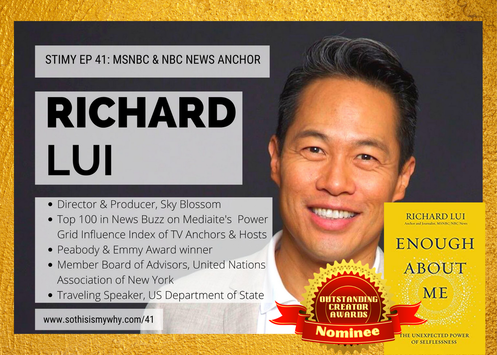
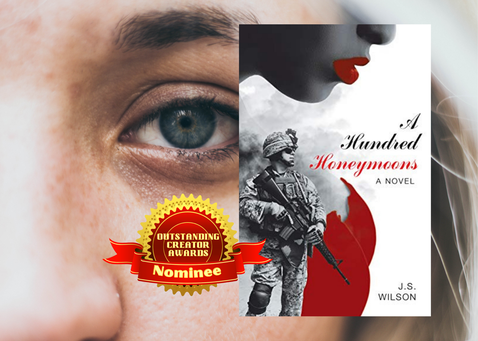
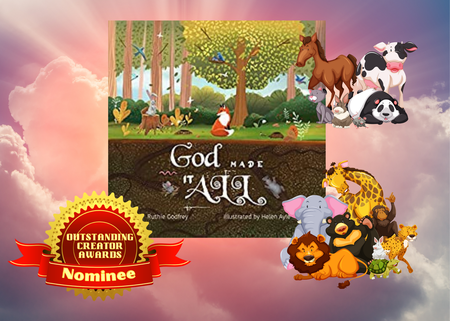
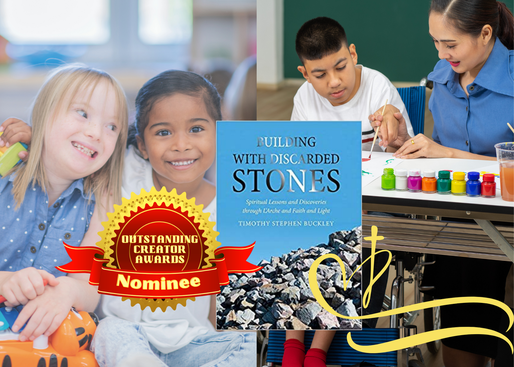
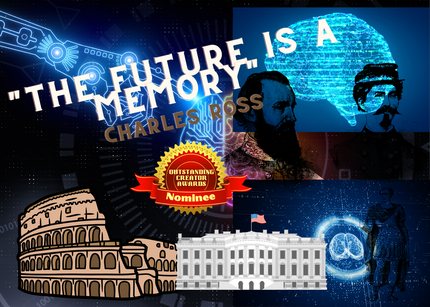
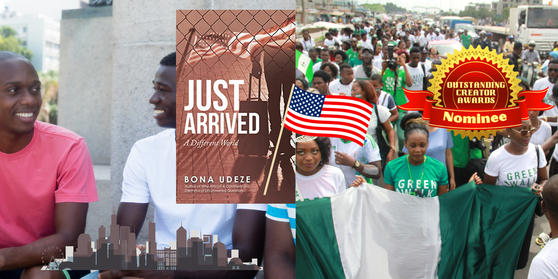
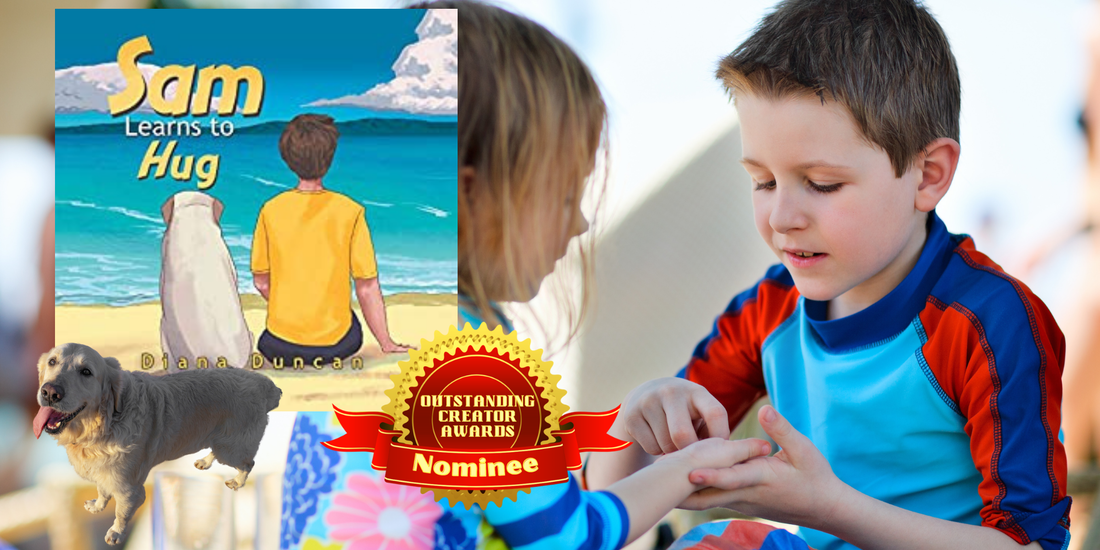
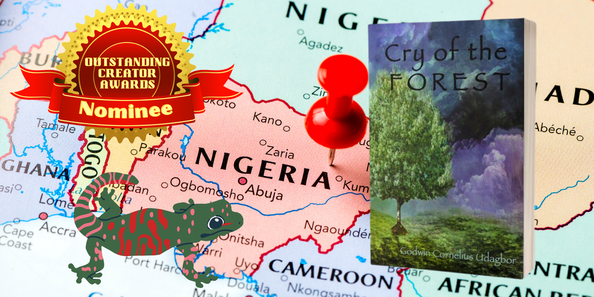
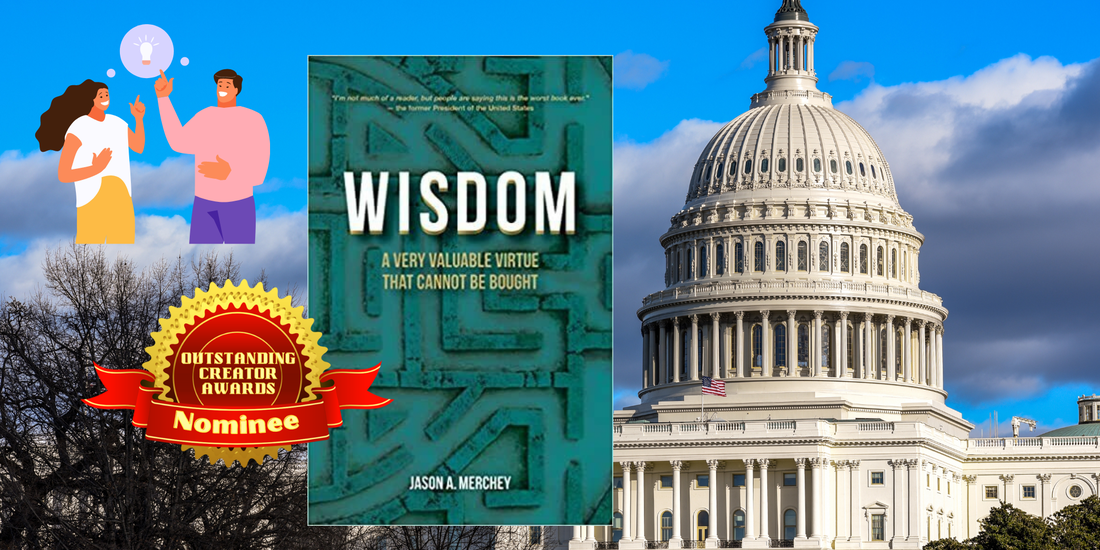
 RSS Feed
RSS Feed